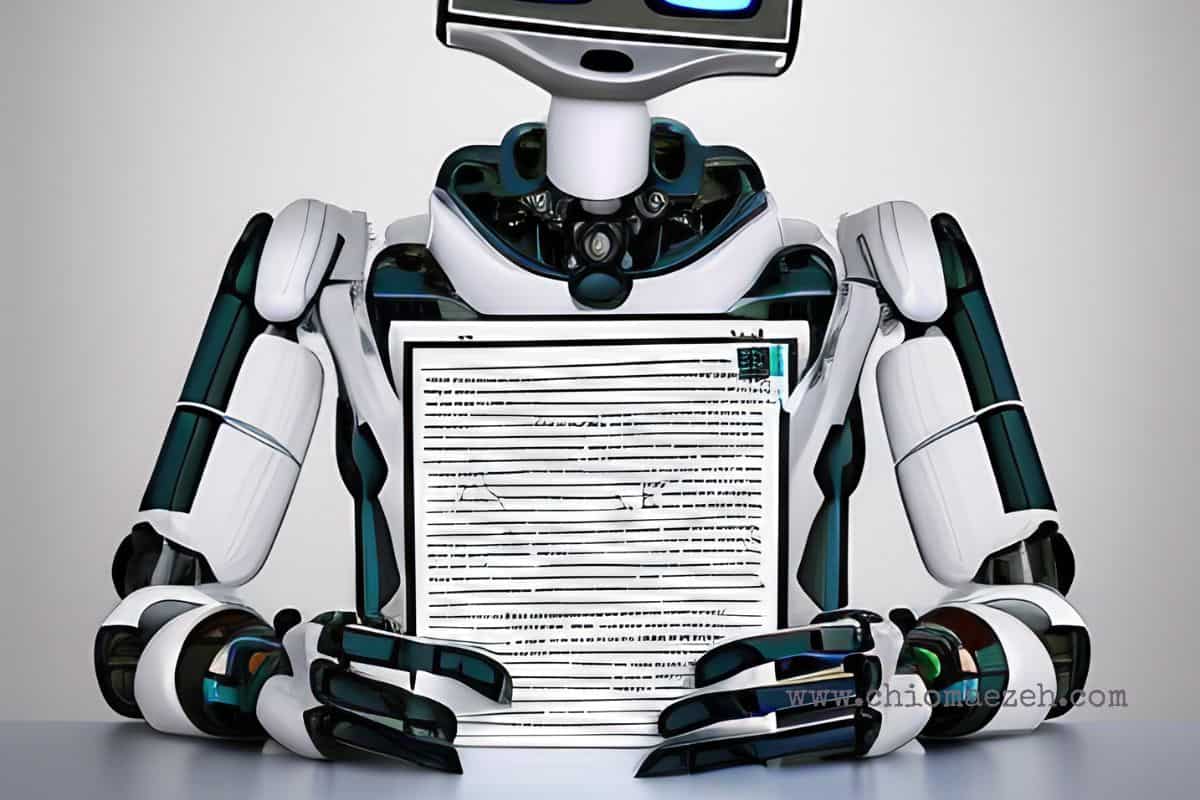17 Reasons Not To Use AI For Content Creation [Ethical]
As Artificial Intelligence (AI) becomes increasingly prevalent in our lives, many people are asking whether or not AI should be used for content creation. While there are certainly benefits to using AI for content creation, it is important to consider the ethical and other implications of such a practice.
This article will explore 15 reasons why it may not be wise to use AI writing tools for content creation and look at some of the potential consequences that could arise from doing so. By understanding these concerns, we can better assess the risks associated with this technology and make informed decisions about its use in our writing processes.
So let’s get started.
👉 See our overview guide on AI writing

Let’s Talk
Are you a writer aspiring to pen a masterpiece that never fails to captivate? Look no further. Reach out to us and uncover how we can help you to take your writing to unprecedented heights!

17 Reasons Not To Use AI For Content Creation
1. Loss of Human Creativity.
One of the main reasons why using AI for content creation is frowned upon is because it could lead to a loss of human creativity and imagination overtime. Whereas humans can come up with new ideas and ways of expressing themselves, AI lacks the capacity to do so. Instead, AI would be limited to producing pre-programmed responses, which could lead to dull, predictable content.
2. Loss of Human Jobs.
Another ethical concern with using AI for content creation is that it could lead to a loss of jobs for humans. If companies are able to generate content with AI, they may no longer need human writers and editors, resulting in fewer job opportunities for people.
3. Potential Discrimination.
AI algorithms are only as good as the data they are fed, which can be biased and discriminatory if not properly monitored. As such, using AI to generate content could lead to perpetuating existing stereotypes and discrimination in society.
4. Unpredictable Results.
Since AI is heavily reliant on data, it can be difficult to predict the results of its content creation. In some cases, AI may produce inappropriate or offensive material that could have serious consequences for an organization or individual.
5. Difficulty in Editing.
If a company decides to use AI for content creation, they may find it difficult to make changes and edits since the material was generated by a machine. This could lead to content that is difficult to revise and update, resulting in inaccurate information being presented to the public.
6. Loss of Credibility.
If people are aware that AI was used for content creation, it may create an air of distrust and suspicion about the accuracy of the material produced. People may be less likely to believe a company’s content if they know it was generated by AI.
7. Limited Scope.
Even the most advanced AI algorithms have their limitations when it comes to generating content. While they can produce large amounts of material quickly, they may not be able to replicate the creativity and nuance of human writers.
👉 See our guide on the benefits of AI writing
8. Lack of Quality Control
Using AI for content creation could lead to a decrease in the quality of material being produced, as there may be no human oversight during the process. This could result in low-quality content that fails to engage readers and does not represent a company’s brand in an accurate or positive way.
9. Complex Legal Issues
Using AI for content creation may present a number of complex legal issues, as it is difficult to determine who exactly holds the rights to any material generated by a machine. Users should be aware that using AI for content creation could open them up to potential lawsuits.
10. Potential Data Breach.
If a company is not careful with the data they are feeding into AI algorithms, there is a risk that personal information or sensitive material could be exposed. Companies should ensure that their AI-generated content does not contain any private or confidential data to avoid potential data breaches.
11. Unclear Regulatory Framework.
Since AI technology is still relatively new, there is a lack of a clear regulatory framework surrounding its use for content creation. Creators and businesses should be aware of the potential legal issues and ethical concerns that may arise from using AI to generate content. For example, for blog content creation for SEO purposes, Google may frown upon auto-generated content.
12. Cost:
Developing and implementing AI algorithms for content creation can be costly for companies. They must factor in the costs of developing the technology, training staff to use it properly, and paying for ongoing maintenance, which could add up quickly.
13. Lack of Human Touch.
Despite advances in AI technology, many people still prefer content that has been created by an actual human being. The lack of emotion and personality in AI-generated content can be off-putting to some readers, meaning that creators may struggle to engage with their audience using this method.
14. Difficulty Integrating.
Many companies may find it difficult to integrate AI into their existing operations, as the technology can be complicated to set up and use. Companies should ensure that they have the resources and expertise on hand to properly implement AI-generated content into their systems, or else risk wasting time and money.
15. Inaccurate content.
AI may also produce inaccurate content. Depending on the data used to train the algorithm, the AI-generated content could be filled with mistakes and inaccuracies that would not have been present if a human had written it. This could lead to confusion and misinformation being spread via the generated material.
16. Robotic Texts.
Another potential issue is that AI-generated content can end up sounding robotic, lacking the natural flow and emotion of human writing. This could make it hard for readers to engage with the material, as it may not feel like a genuine conversation or conversation starter.
17. Unclear Intentions.
Lastly, people may be unsure of the intentions behind AI-generated content, as they may not know whether the text was written by a machine or a person. This could lead to confusion, mistrust, and even suspicion among readers. Companies need to be transparent about their use of AI in order to gain the trust of their audience.
Final Notes
While AI has the potential to revolutionize content creation, there are still a number of challenges associated with its implementation. Individual content creators and businesses should consider the potential costs, legal issues, and risks associated with using AI for content creation before taking the plunge. They will need to decide if it is worth investing in this technology or if human writers are still their best option.
Overall, using AI for content creation can present both advantages and disadvantages to organizations. While it can produce large amounts of content quickly and easily, there are ethical and legal concerns that need to be addressed.

![17 Best SEO Automation Software Tools Of 2022 [Ranked]](https://chiomaezeh.com/wp-content/uploads/2022/11/Best-seo-automation-tools-6-768x512.jpg)
![What Is AI Writing? [What You Need To Know!]](https://chiomaezeh.com/wp-content/uploads/2023/03/what-are-ai-writing-tools-2-768x512.jpg)

![8 Best AI Content Detector Tools: How To Spot AI Generated Text [2023]](https://chiomaezeh.com/wp-content/uploads/2023/01/Best-AI-Content-Detector-4-768x512.jpg)
![15+ Best AI Writing Tools Of 2023 [Ranked & Reviewed]](https://chiomaezeh.com/wp-content/uploads/2022/11/Best-AI-writing-tools-1-768x512.jpg)
![Jasper AI Review [2023]: Is It Worth It For Writers?](https://chiomaezeh.com/wp-content/uploads/2023/03/Jasper-ai-review-768x512.jpg)